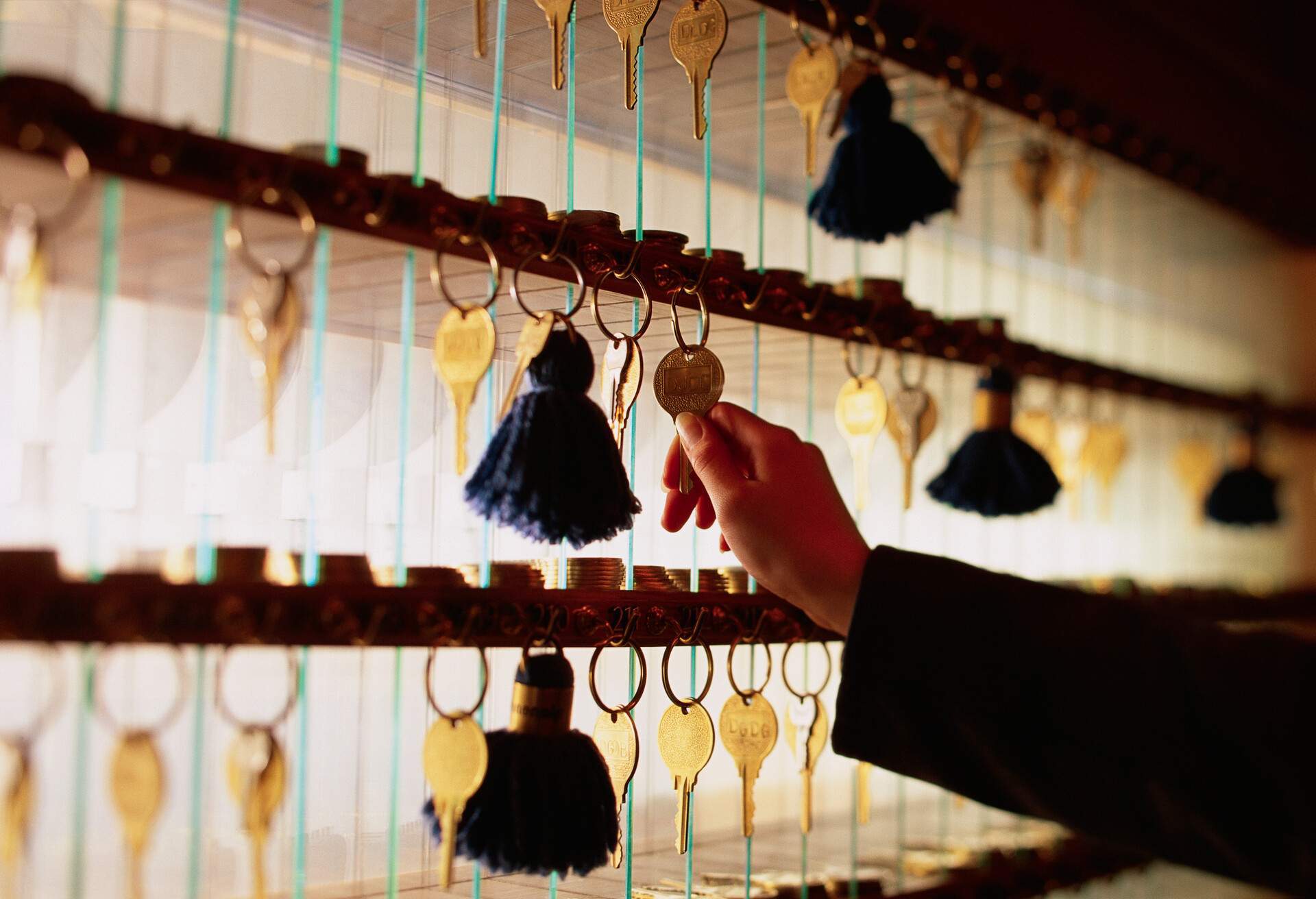Like anything else you buy today, it’s helpful to read hotel reviews before committing to a booking, but not every review is relevant. Some are even fake. Before making the critical decision of where to base yourself during your time away from home, learn how to identify the real reviews, and how to sort through the rest to make sure you’re making the right choice based on what’s relevant to your own needs. There are mountains of hotel reviews out there, but they’re not all useful. Luckily, it’s pretty easy to find the ones that are with the tips and tools below.
- Analyzing hotel review scores
- Reading individual reviews
- Identifying trends and patterns
- Considering the reviewer’s perspective
- Personal preferences and deal-breakers
- Conclusion
Analysing hotel review scores

The quickest indicator of guest satisfaction with a hotel is the average review score, or overall rating. I prefer checking KAYAK’s review score over others because it aggregates reviews from a variety of sites, offering a more complete picture than any single platform might show, and the reviews come from verified guests. When searching hotels on KAYAK, each result shows a total review score from 1–10, and you can sort results by review from a dropdown at the top of the results page. Use this aggregate score only as a starting point for deciphering customer satisfaction, though. Equally important is the number of reviews because an average is swayed more easily by individual reviewers when there are few in total. Generally, the more reviews, the more accurate the score, since a single angry or overjoyed customer has little ability to sway the overall score.
Reading individual reviews

While total review scores are a great starting point for narrowing your hotel search, it’s the individual reviews that reveal the realities of the hotel – and of the reviewers themselves. If there are many positive reviews that offer generic praise without details, especially over a short time period, it’s likely these are fakes – listed or paid for by the hotel itself. Ignore them, and realise the overall score is likely to be lower without these fake ones. Fortunately, these are rare on KAYAK, since they only include reviews from verified bookings.
Details like mentioning employee names and describing specific experiences are indicators that reviews are likely authentic. These more comprehensive reviews also help to inform you whether the reviewer is leaving fair, overall feedback or just slamming a hotel because of one minor detail. Because many people are tempted to leave reviews only when they’re angry or super impressed, I prefer to read middle-of-the-road reviews for a more accurate picture of what was both good and bad about the experience before confirming my own hotel choices. Extreme reviews, both positive and negative, may have insights to share, but middle-score reviews tend to be more comprehensive and less swayed by a single amenity, interaction, or experience.
Identifying trends and patterns

One-off experiences, good or bad, aren’t very helpful for understanding what your own experience will be like, so keep an eye out for trends and patterns across multiple reviews instead. If multiple guests experienced the same bad buffet or amazing bartender, there’s a good chance you will, too. If only one person’s room was too cold, it could have been a particularly sensitive guest, or there may have been a mechanical malfunction that has likely been fixed. Don’t make decisions based on isolated incidents – patterns are more reliable. Also, keep in mind that all things eventually break, and everyone has a bad day, so it’s not relevant to judge an entire hotel experience because a lightbulb was out or a housekeeper forgot to bring extra coat hangers. Reviews that focus only on these inevitable one-offs should be ignored.
Just as importantly, I always consider time patterns when assessing reviews. If several people mentioned a rude concierge, but all those reviews were two years ago and no one has mentioned it since, the issue has likely been resolved – so I wouldn’t scratch the hotel from my list even though many people complained of the same issue. Similarly, if many people raved about the menu nine months ago but failed to mention it since, it’s possible the menu or chef has changed, so I wouldn’t book a hotel based solely on this past positive. Patterns that stretch across time are more representative of the current reality at a hotel. I love that KAYAK lists reviews by date, with the most recent reviews first, because it makes it easier to identify current trends at a hotel.
Considering the reviewer’s perspective

How many times have you heard that we’re all special because each person is unique? While that may be true, it also means our unique histories and personalities affect the way we interpret experiences. When reading reviews, keep in mind that perspective is everything. For example, a guest with two younger children may find a lushly landscaped property frustrating because it’s harder to keep an eye on everyone. Meanwhile, it may be an Instagrammers dream, but equally enjoyable to a couple looking for more secluded areas to relax. Likewise, some generations of travellers may expect a more comprehensive style of service and become annoyed if left alone too long, while other generations may take a more do-it-yourself approach and would be uncomfortable with constant attention from waiting staff or housekeepers. Whenever possible, keep reviewer demographics in mind to help determine if their perspectives have reviews in perspectives that are relevant to you.
Because different travellers look for different qualities and amenities in a hotel, KAYAK not only shows a total review score but further breaks down scores by traveller type, showing the average given by guests from each group. If you’re travelling alone, you’re probably not looking for a fantastic kids’ club or a romantic restaurant, so it’s not necessarily wise to make a decision based on a total score that has been affected by these amenities. While you may be put off by a total review score of 7, taking a closer look at reviews by traveller type might reveal that solo travellers rated the hotel a perfect 10, a score that is likely more indicative of how you will personally find the property.
Personal preferences and deal-breakers

When choosing a hotel, it really comes down to what’s right for you, not everyone else, so have a list of preferences and deal-breakers in mind before reading reviews. If you love big pools, ocean views, and killer cocktails, don’t be swayed by negative reviews that only complain of runny eggs. It’s not relevant to you. Know what you want and don’t want from a property, and look for reviews that discuss these specific qualities because these are what will most determine how good of a time you have there.
When reading overly positive or negative reviews, it helps to keep in mind that others have their own preference lists and deal-breakers, too. A whiskey-lover may be ecstatic to find a rare bottle available at the hotel bar and leave a glowing review for the entire property, just as a sensitive sleeper may be so bothered by firm pillows that they leave a scathing review of the hotel. This is another reason that detailed, longer reviews are more beneficial and should be given more weight in influencing your own decision. From these, you can get a better sense of whether the guest was truly giving an accurate picture of the entire property, or was simply swayed by a single preference or deal-breaker that changed their entire impression.
Conclusion

Reviews are the best way to discover the reality of a hotel experience, but only when you know how to use them. It’s critical to disregard fake reviews, but it’s equally important to deprioritise honest reviews that don’t relate to you and your own needs. If you read every review and take every opinion into account, you’ll never settle on a hotel because no hotel (or anything in life) is a perfect fit for every person. You’re likely to find hundreds, if not thousands, of reviews for many hotels you search, but there’s no need to be overwhelmed by the volume. Simply keeping in mind the basic pointers of looking for detailed and specific reviews, identifying patterns and trends in features and time – and prioritising reviews from those whose preferences and deal-breakers most match your own – will point you in the right direction. To get you started, KAYAK can help find the perfect hotel for you and provides Price Alerts when your chosen property hits a great price.







